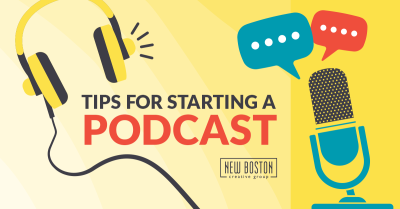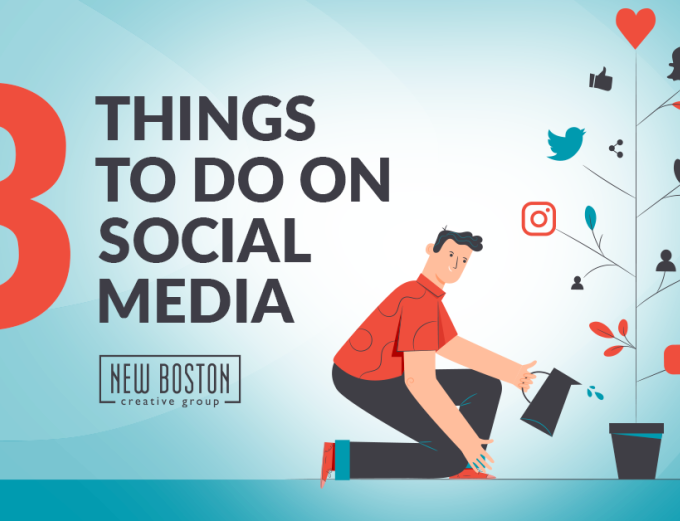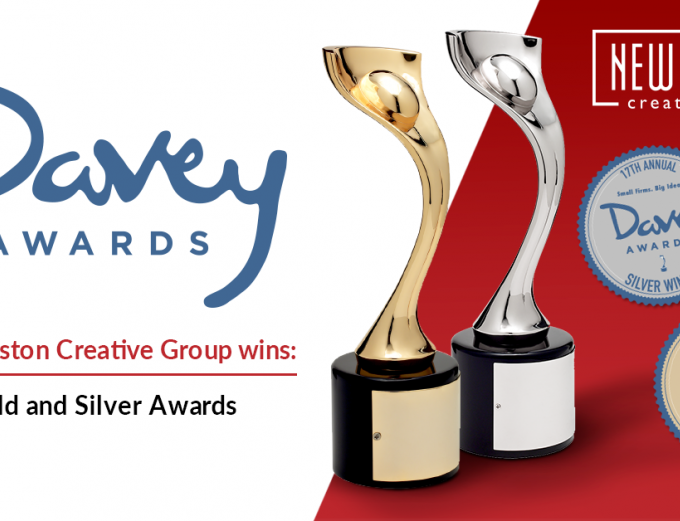How to Start a Podcast for Your Business
by Julie Fiedler on January 14, 2025
Podcasting is more than just another entertainment outlet: It’s also a great way to reach an engaged, interested audience. If your company is thinking about starting a podcast, you might be wondering if it’s too late in the game to get started or if it’s worth the investment for a business like yours.
We’re here to tell you: It’s definitely not too late to jump in. This is a growing channel that reaches multiple generations. Edison Research polled audiences ages 12 and up and found:
- 67% have listened to a podcast at least once;
- 47% listen to podcasts monthly; and
- 34% listen to podcasts weekly.
Edison Research also found each generation has a large share that listens to podcasts monthly.
- 59% of young adults ages 12-34 listen to podcasts monthly.
- 55% of adults ages 35-54 listen to podcasts monthly.
- 27% of older adults ages 55+ listen to podcasts monthly.
So, no matter who your target audience is, chances are many of them are listening to podcasts.
NBCG’s podcast, Almost Productive: A podcast mostly about marketing, has been recognized with Davey Awards in the podcast categories of professional services and co-hosts. The team has learned a lot since launching in 2023, and below we share some strategies, tips and takeaways about topics ranging from developing your strategy to producing episodes and promos.
Benefits of Producing a Business Podcast
Producing a business podcast is a great way to engage with new audiences on a more personal level. You can showcase your expertise, increase awareness and drive traffic to your website.
“Having a podcast in your wheelhouse gives you one more opportunity — one more place where you can reach an audience that would be interested in what you’ve got to say,” said Julie Fiedler, NBCG director of digital marketing.
But admittedly, it’s not for everyone.
Addie Justus, New Boston senior content marketer, said before developing a podcast, companies should consider whether they have something to say that fits the medium.
“It can be a nice extra bit of marketing that you can do, but you may not need it in the same way that you need to have a website or that you need to have a Facebook page,” added Shawn Dryden, NBCG principal and owner.
Producing a podcast requires time and resources. Plus, you need to commit to giving your podcast time to find an audience because podcasts rarely see overnight success.
Not sure if a podcast makes sense for your business? Check out our Almost Productive episode on this very topic to get a better sense of what podcasting entails.
How to Get Started
If you want to launch a podcast, we recommend putting a team together in your organization. Here are some key items you’ll want to address.
Think about the strategy behind your podcast. Ask the following.
- What are your goals for the podcast?
- What’s the focus? What topics do you plan to cover?
- What will the overall tone be?
Then you can brainstorm fun stuff, such as what you’ll call it and the branding. We recommend incorporating elements from your company’s main brand such as colors and fonts, while giving the podcast a distinct feel.
There’s a lot to consider from a logistical perspective.
- What will the format be — interview style, narrative, multiple hosts, etc.?
- How long will each episode be?
- How often will you publish episodes?
- What platforms will you publish on — YouTube, iHeart, Spotify, Apple, etc.?
- Will you do audio-only or incorporate video?
Don’t feel locked into your choices. Experiment with length and format. After we launched our full-length episodes, which run about 30 minutes each and go in-depth on more complex aspects of marketing, we decided to try a shorter-form version as well. We introduced Coffee Break episodes, which run about 10 minutes and tackle lighter marketing topics.
Equipment is crucial, so it deserves its own paragraph. High-quality microphones are a must. Expect to pay at least $150-300 for a decent one. You can certainly go higher, but we don’t recommend going lower. Using a recording studio instead of a video conferencing system to record is another key choice. You’ll want each participant to have a separate audio track. (If you use a recording studio, the sound engineer will have this set up. But if you use a video conferencing platform such as Zoom, you’ll need each participant to record their audio through a separate app.) This will make the editing process much smoother.
Tips for Producing Your Podcast
Once you have a big picture in mind, get ready for production.
- Plan your episodes. This might be as simple as creating an outline or writing a list of questions to discuss. Although you can script the entire episode, you’ll likely lose the spontaneity and personality that makes podcasts so personable and relatable. If you’d feel better with a script, make sure the host is a great actor who sounds natural.
- Hire an experienced editor. Good editors will not only trim awkward pauses and cut content for time, but also mix audio, making sure levels are set properly, and add music and sound effects to punch up the production.
- Have the team listen to the whole episode. When you have a rough cut of your episode ready, have the core team review it. You don’t want too many chefs in the kitchen, but different people will catch different issues. You also want to make sure that a cut you make in the first part won’t disrupt a segment later in the episode. So, listen to the entire recording to ensure everything sounds good and makes sense.
- Include measurement in your plan. How will you know how well your podcast is performing? You need to look at the data. Each platform has slightly different metrics. Some offer a lot of detail, while others provide only rudimentary information. Make sure you look at your metrics at least once a month to identify any trends and determine if you want to make any changes to your strategy, format or topics.
If producing a podcast is more than you can take on, consider advertising in this space. Edison Research found that podcast listeners tend to be open to advertising, with 46% of weekly listeners reporting they have purchased a product or service because of an ad they heard on a podcast.
Next Steps
If you’d like to explore producing a podcast or advertising on podcast channels, reach out. This is a great avenue to explore, and we’d love to get into the nitty gritty together.






